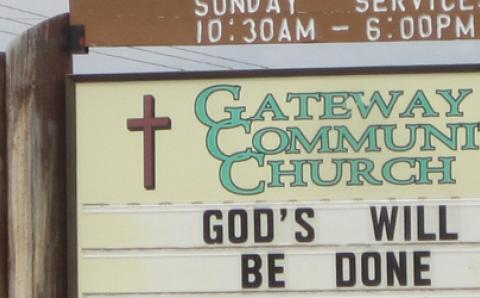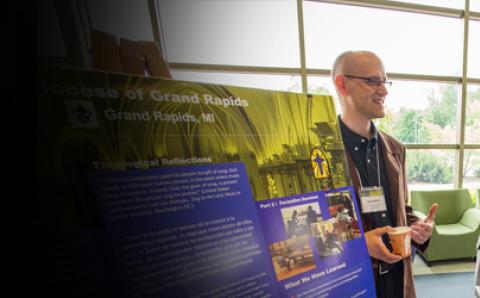Rev. Henry Numan’s article “Finishing Well” describing some of the faith milestones of our senior years reminds me of something a friend told me about her aging father. Dad had become a touch hard of hearing—something he put to good use. She described this exchange between her young son and her father:
“Opa, will you take us to the park?”
No response from her dad.
“Opa, will you take us to the park, pulleeeeze, Opa?”
Dead silence.
“Opa . . .”
“Fahgedaboutit,” Mama told the supplicant, “Opa can’t hear you. . . .”
She confided, though, that he never had trouble hearing her softly spoken announcements from the kitchen: “Dad, it’s lunchtime.”
Slightly diminished auditory acuity isn’t always a bad thing—something the writer of Ecclesiastes already knew: “Do not pay attention to every word people say, or you may hear your servant cursing you—for you know in your heart that many times you yourself have cursed others” (Eccl. 7:21-22).
In my younger years, criticism from any quarter would cut like a knife. And if I caught the slightest whiff of criticism I would go and sleuth out the rest of it. Know the feeling? Fortunately, older and wiser colleagues helped me to comprehend the relativity of all that. Developing some “selective deafness” would keep my ears from burning and prevent those barbs from wounding me quite so deeply.
“Really now,” observes the Ecclesiast. “Don’t you do the same yourself: bad-mouthing others behind their backs? So don’t be surprised when you yourself end up at the business end of somebody else’s sharp tongue.”
Not that we should become completely calloused to what others think. We should still let criticism, especially well-founded criticism, sting a little; it may do us good. But we should not concern ourselves unduly with maintaining a sterling reputation. It is not so important that everybody speak well of us. What we are to consider of first importance as Christ-followers is our Father’s reputation, not our own. We pray, “Hallowed be thy name,” even if heaven’s answer to that petition sometimes recoils, giving us a bad name in this messed-up world.
Practicing sanctified selective deafness helps us to stop polishing the shiny image of ourselves we put out there to fool others. By genuinely sharing who we are, warts and all, we can more lovingly, honestly, and humbly bless each other more and “curse” each other less.
This willingness to be ourselves is a crucial prerequisite for any meaningful small group ministry we might join this coming church season. Participating in those groups requires that we check our images and egos at the door and be there for each other in all honesty, sincerity, and humility—sharing our failures as well as our successes, our hurts as well as our highs, our questions as well as our answers. Rather than sacrificing honesty and true community to the idol of Image, let’s learn to sacrifice that worthless idol to God. It’s usually when we love deeply enough to share our weaknesses, hurts, and sins that Jesus shows up.
About the Author
Bob De Moor is a retired Christian Reformed pastor living in Edmonton, Alta.







